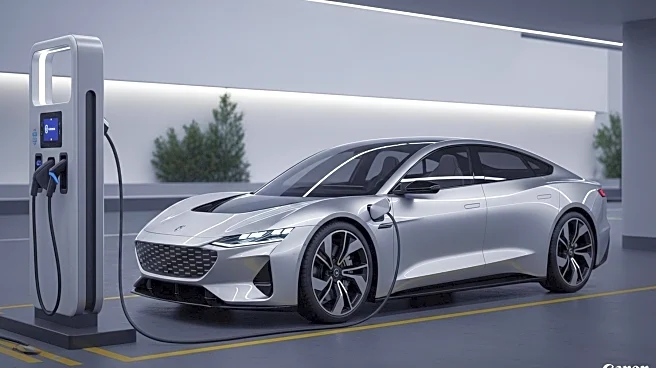What's Happening?
Electric vehicle (EV) sales have been the sole contributor to growth in the automotive market since 2020, according to recent data. While sales of fossil-fueled vehicles have declined, EV sales have consistently increased, marking a significant shift in consumer preferences. The data, sourced from the International Energy Agency, indicates that nearly 20 million EVs were sold in 2024, accounting for a substantial portion of total vehicle sales. This trend reflects a growing demand for sustainable transportation options and a move away from traditional gasoline-powered vehicles.
Why It's Important?
The rise in electric vehicle sales underscores a transformative period in the automotive industry, driven by environmental concerns and technological advancements. As consumers increasingly opt for EVs, automakers are compelled to innovate and expand their electric offerings. This shift has implications for energy policy, infrastructure development, and environmental sustainability. The growing EV market presents opportunities for economic growth, job creation, and reduced carbon emissions, aligning with global efforts to combat climate change.
What's Next?
The continued growth of the EV market is likely to prompt further investments in charging infrastructure and battery technology. Automakers may accelerate the development of new EV models to meet rising demand, while governments could implement policies to support the transition to electric mobility. The automotive industry may also face challenges related to supply chain management and resource availability, necessitating strategic planning and collaboration among stakeholders. As the market evolves, consumer education and incentives may play a crucial role in sustaining the momentum of EV adoption.












